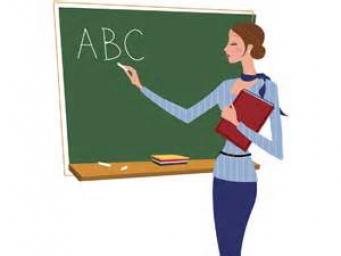Case
Silent Period
Grigor is in my 4th grade classroom. He came to the US last year with his family from Bulgaria. He was in 4th grade at our school last year as well. He was retained in 4th grade because he did not develop his English language skills. I learned about a "silent period" that children go through when they learn a new language. My guess is that Grigor is in the silent period. But it does not make sense to me that he would be in the silent period for almost two years. He does not say anything in class. He does not socialize with his classmates either. He can read and write in simple English though. His parents tell me that he acts completely normal at home and he is able to communicate with English speaking people at home when they have guests. This is really puzzling. I have to find a way to communicate with Grigor and discover what is holding him back from communicating with people at school. I need some help.
Solution #1
I like your suggestion to reach out to him using his culture. I think that the boy must be uncomfortable and feel lonely if he is not communicating with other people at school
I like this suggestion of having the teacher do some research on Grigor's culture and ask him to express his culture somehow. This will show Grigor that the teacher cares and respect him. Hopefully this will allow him to open up to the teacher and then eventually open up to students.
The encouragement of him participating in other interests can certainly help break the silent period. Speaking with Grigor's parents can provide insight on his interests. Having taught a student from Bulgaria who came to me speaking absolutely no English, I witnessed a growth from silence to becoming the most talkative and liked person in the class. This particular student blossomed once soccer began at the school. He was a star athlete who felt completely at home on the soccer field. Helping Grigor find an activity which interests him may be just the thing to break his silent period.
I agree--you need to develop a personal relationship with Grigor. You do have to break the cultural barrier with him, but only through ways that are pertinent to him. Maybe alongside with his parents, get to know him better by finding out what his interests are, what he likes to do at home and even what he likes to eat. Once you can get to know him a little better, you can begin to cater your instruction by keeping these things in mind.
Finding things that he enjoys, is a great way to help him open up. I love how you stated to incorporate his culture, music, and art.
I like your suggestion of using art and music to bridge the gap between Grigor and the other students. Music and art can communicate when words cannot.
I think that Grigor needs to be able to trust his teacher, and your suggestion will help him gain a little trust. Incoporating part of his culture into the classroom is a great idea; however, it needs to be done in the context of other countries, so it does not look like the teacher is focusing on just Grigor.
This is a great suggestion! Showing a child you care is a great way to get them to open up and show their personality...I think a lot of children just need that one person to care for them, and by showing an interest in what Grigor likes, is a great way to go about that!
I also believe that drawing is an excellent way of attempting to get Grigor to express himself and open up. Have him start a daily journal, along with the rest of the class, that requires them to drawing or write one things each day about themselves. You may find that his drawings will tell a story he is unwilling to share with words.
I really liked your suggestion on finding a way to help Grigor communicate. Drawing is a great way to encourage him to communicate his immediate needs and to reflect on life in Bulgaria. Perhaps he could use computer software to draw or animate images. He could also use computer software to communicate with classmates though student e-mail. Using student e-mail would help Grigor make friends with his classmates as well.
Great suggestion. I like your ideas of reaching out through the student's culture. When new students come, from any culture, reaching out to them through a common interest is another great idea. This will show to the student that the teacher cares. They are able to express themselves as well.
My thoughts were similar. Bringing his culture into the classroom could definitely help and getting to know him is important.
I really like your idea of reaching out to the student to learn more about him. Make him understand that being who he is will always be a good thing. He should never be ashamed or hide who he is just because he now lives in a new country! This is a great idea! It might even be a good idea to have him share his culture with the class!
Sometimes students feel unwelcomed in a new place because they are different. I love your solution.
I like this solution. I think that your use of dialog journals in the past was good. You stated he can read and write in simple English. Maybe have him write to open up to you. Or give him a pen pal. Somebody in the classroom that he can write notes back and forth to. He may just not understand our social ways and may be bashful. If he has one person he feels comfortable with, maybe he will open up in time.
This seems like a good strategy. I like the idea of using his culture to bond with him. The teacher could also show interest by learning some simple phrases. A little interest paid to his culture might be enough to help Gregor begin to bond with his teacher and classmates.
I agree with your solution. Reaching out like possibly using the filmstrip idea from Igoa. This may help the student feel comfortable speaking in class.
I like your idea of reaching out to him through some element of his culture. It doesn't matter if they are English language learners or not, all children want to feel valued. By putting in a little extra effort and showing him that you took the time to learn more about where he came from, you might be able to open the doors of communication with him. Ultimately, I feel as though there really wasn't a reason to retain him, if he is not going to be given the support he needs to be successful upon retention. The support he needs is clearly more emotional and interpersonal, so that should be your focus.
I think it's a good idea to try and find something he is familiar with and use this help him open up. Finding something from him culture that is interested in should help him feel more comfortable when speaking in class.
He needs some friends. He should find a couple of trustworthy students who are willing to be paired with him so he feels some connection to the student body of your school. Trying to connect with him through learning about his homeland is good to but the main thing he needs is someone to interact with at school.
I love that you suggested that the teacher find something that he is able to communicate with the student about. I think that during this "silent period" that this is critical because after two years there is something else going on. If his parents are saying that he is able to communicate at home and wit English speaking guests them maybe he is not feeling safe or that he belongs while he is at school. I also suggest maybe linking him with a partner in order to make him feel more comfortable around the other students.
I think finding more out about the culture is a good idea. Maybe students of that particular culture do not talk in class normally. Maybe for him he is on his best behavior.
Brittany, I think that researching more about his home country could help the teacher connect to the student. Also, as the teacher I might would assign him to research information about his home country and develop a presentation for his classmates or his teacher. The student could teach the teacher about various aspects of his home country. If he is comfortable with this, the teacher might even suggest presenting the information to the rest of the class. His classmates could then come up with questions that they wish to ask him about his home country. This would be a great opportunity to integrate social studies, language arts, and social skills content.
I love that you are meeting the student where they are at instead of forcing our ways on him. He may just be a "late bloomer" so it may take a little longer for him to open up. In the meantime, we need to make sure we are doing everything we need to expose him to appropriate language and culture.
Great ideas!
I agree that you need to connect with him through his culture. One cool way might be finding some Bulgarian foods that are delicious and making him one for a treat or dessert. If you do this, he may want to tell you about it and how he might have eaten it in his home country. This will help bring him out of his shell.
This is a great solution. Finding something that Grigor enjoys will help him tremendously to open up and express himself. It would also be helpful for the teacher to integrate the things Grigor enjoys with the curriculum.
I like your solution. You're right sometimes students just don't feel welcomed
Bringing in his culture would be a great idea. Grigor may feel more comfortable with his culture brought out and incorporated into the classroom. I would also suggest pairing him up with another student and see if they can form a friendship. that might help him open up as well.
I also agree that bringing his culture into the classroom would be a great idea. He may open up more once he sees something familiar.
I think it is a great idea to allow him to express himself in another way. He could draw a picture and then when he is comfortable enough, he may be willing to talk to you or the class about the picture.
I think this is a good strategy to connect with Grigor.
This is a great idea!
Solution #2
I agree that reaching out and trying to find things that interest him may be the best way for him to open up. I also believe speaking to the parents would be beneficial.
The teacher can ask his parents to make a list of things he is interested in, and then the teacher could find pictures, objects, literature pieces, and music of Grigor's interest and place in a safe haven for him.
I had suggested going straight to asking him why he does not talk in class. I might have been setting myself up for an answer like, I don't know. I like your idea of finding his interest. Sometimes we have to keep trying as teachers, even when it seems to never work. Once we find that spark it so rewarding.
I believe consistency and persistence is key. He is probably expecting people to give up on him since he will not respond. Be that person that continues to try because you believe he is worth the time. If he doesn't want to talk about himself, share some things about yourself that he might find interesting.
I really liked your idea of having personal communications with Grigor on a daily basis. Like the student you mentioned after a few weeks of persistent attempts to hold a conversation Grigor may feel comfortable enough to begin talking. Letting students know that their teacher is interested in them and cares about them is always a good way to build a trusting relationship with students. Eventually Grigor and students like him will realize that they can successfully communicate with their teachers.
This is a good suggestion and you made a good point in that the teacher should remain persistent in their attempt to have the student open up. He may really miss the Bulgarian school and teachers and feel that the U.S. way is very different making it difficult to express himself. Letting him express himself through one of his interests in an environment that is not judgmental will allow him to open up.
I think that is a great idea. Finding something that is intersting to the student will allow them to feel more comfortable in the classroom. This may give them an oppertunity to connect with another student with the same interest. -Kayla
You are correct that reaching out to Grigor and showing him that you care is probably the best approach to helping him break out of his silent period. Trial and error may be a good approach until you figure out what works best. Speaking to his parents about what interests him may be another way to get him engaged in conversation. I also like your comment on persistence. Persistence will be key in getting Grigor to work through his silent period. He probably will not respond for a while. You need to show him that you actually care about him and his situation, and he will probably open up at some point. I might also suggest finding a classroom "buddy" to pair him with. Kids want friends and peers to speak to and spend time with. Maybe try to match Grigor up with students who have common interests (once you find out what those are) or a trusted student in your class who you know will treat Grigor kindly and with respect.
I think reaching out to the student and finding a way to connect with him/her on a personal level is a great place to start. All students need that personal connection to feel comfortable and know that you truly care. I think the student will definitely be more willing to open up.
Finding common ground is key to establishing relationships with students. However, this can be difficult. I think persistence and patience is also key. Grigor may need more time, but if he knows his teacher cares about him and genuinely shows an interest in getting to know him and helping him, then he will eventually turn the corner.
Igoa mentioned in her book, The Inner World of the Immigrant Child, how she encouraged her students to create filmstrips to share their thoughts and stories. This may be a great way to help Grigor open up his lines of communication, and he can do it at his own pace. Filmstrip stories are a great way for ELL's to share their personal stories/culture with others, and when Grigor is ready, he could do just that. Something else to consider about Grigor. Sometimes there is more going on in an ELL's life than just the lack of English proficiency. Could he have personal issues at home? Friend issues at school? He may still be experiencing culture shock. Take your time with him, and let him know how special and important he is every day, and help him to know that the classroom is his home away from home. Teachers must do everything they can to help all students in the classroom feel wanted and respected.
I completely agree with your response. Sometimes students like him just need to know they have someone at the school they can open up to and trust. He might be fearful of students making fun of him and just needs somebody he can trust. Finding out his interest is a great way to gain trust with him. I know it is hard for anyone to not talk about things they love doing!
I like the idea of finding his strengths and then using those in class! I love finding out what interests my students and what they are involved in outside of school. I feel that it helps me make that personal connection with them and they love when their teacher knows what they love. I have students who play soccer, baseball, ballet and other extra-curricular activities. When I can, I will go and watch them play. It means so much to them when the teacher shows interest in their lives and comes to cheer them on.
I think your suggestion of being persistent is so important. Sometimes, when we are trying to develop a relationship with a student and, for whatever reason, it doesn't work right away, it can be frustrating. This makes it easy for us to give up. But, we can't! If we give up on that relationship, it sends such a sad message to the student, especially if he or she is already having trouble finding a place in our classroom. I once had a student who resisted everything I did to build a relationship with her; sometimes, she was downright violent with her resistance. I wish that I could say we developed a great relationship by the end of the year, but we didn't; however, I never stopped trying. Now, whenever she sees me in the hallway, she smiles and waves...she still won't talk to me really, but I appreciate the big breakthrough of a little wave.
Trying to connect through learning about his interests is a great idea because it will make him comfortable with you. He also needs to learn to interact with other students so I would suggest finding a couple of trustworthy students to take up time with him.
I like your statement of being persistent. Feeling comfortable in a classroom does not happen overnight, just like talking to you will not happen over night. Asking him a personal question every day will show him that you care about him on a personal level. Even if he doesn't answer the question right away it is still important to reach out to him. It might benefit this student to also tell him personal things about yourself!
Sara, I liked how your recommended involving the parents in this issue. Parents can be a great resource for teachers, and they could help the teacher come up with ways to make their son more comfortable and social in the classroom. I would also give him a dialogue journal that he can use with the teacher. The teacher can begin the interaction by asking the student to tell him or her some things about himself and what he likes. This type of prompt could facilitate more in depth conversations between the teacher and the student.
I couldn't agree with you more that persistence is key! If you show him daily how you want to reach out to him then he will feel valued and hopefully more willing to open up.
I think your suggestion is spot on. I think gaining a relationship by using his interest will get him to talk. I think it is important to use different teaching strategies such as reading, music, art, etc. Moreover, if you use items from his culture it may also help.
I think reaching out to his interest is one of the best ways to gain his trust. If you show that you care and want to learn about him and his culture it will hopefully let down that silent guard that he has up within the classroom
I really like your suggestion and your firsthand experience! That is great that you were persistent with your silent student, yet you didn't push too much either. It also sounds like you respected this phase for s/him and didn't treat s/him as unwilling to learn/cooperate, or as a slow or ignorant student. I think by doing these things your student felt comfortable enough to come around to you.
Great idea
Relating to his interests sounds like a great way, and the most realistic way, to get anyone to open up.
I agree that being persistent sometimes helps. I had a student from Costa Rica last year that we thought did not know English. Apparently he was going through the silent period and after trying to talk to him every day he finally opened up and we realized he was able to speak English, he just wasn't comfortable doing it yet.
I didn't even think about talking with the parents. You could have his parents write down a list of things that interest him and go from there.
I like the idea of getting to know the student and finding something that interests him. Figuring out his interests may have him come out of his silent period. Also the bond between you, as the teacher, and the student will be stronger. Asking him personal questions will show that he is noticed and important in the classroom. Also relating to him o his culture will show that you care. The filmstrip from Igoa may also be used to help the child.
I like your suggestion on finding something he is interested in from Grigor or his parents, so you can try to make him more comfortable and start communicating with you and other students. The other thing is where you said to "be persistent and not give up." I believe too many times teachers and other staff members give up on these students to soon and then it is to late. Being persistent and never giving up on the child will make them feel they are important and that others are interested in what he has to say.
I agree that persistence is key when dealing with a silent student. They may not come around the first couple of attempts, but keep trying new things and sooner or later they will begin communicating more and more.
Solution #3
I think hobbies would be a great way to get Grigor to open up. Being in the silent stage, he needs to express himself in any way possible. After finding out what he enjoys doing, I think it would be a great idea to have Grigor put in small groups of other students who enjoy the same hobbies. This will encourage him to branch out and make new friends through similar interests.
I like the idea of using hobbies to help bring him out of his shell. He needs to find a way to communicate his feelings and frustrations. This would be a good way of doing just that.
You are right that trying to create a connection with Grigor would be the best way to get him to open up and break through his silent period. I would recommend being selective and careful about who you ask to befriend Grigor. Make sure it is a student you know will be receptive to him and patient with him as he works through his silent period. Also, if you are able to find out what Grigor's hobbies and interests are, you could match him up with students with like interests and hobbies.
I agree that finding some sort of connection with the student is key here. I think that the teacher will have to find a way for him to open up, and it may be that several different strategies have to be used, but if he is talking at home that is a good sign too.
I like your idea of finding an interest of Grigor. This will help him see that the teacher cares and Grigor can express himself. I have a student that rarely speaks and when he does he is either copying what I am saying or saying something that is not understandable. But I always make a point to talk to him and ask him questions. I do know he likes the movie Madagascar. By talking to him, he has really opened up.
Yes, it is crucial to get to know all of your students, but I think it is especially important to get to know students from another country. Getting to know them will allow you to connect with them on a personal level and find out his interests and you may find out that he is just an "introvert" who doesn't feel comfortable talking around a lot of people. Or you may find out there is a deeper problem that you can help him fix.
I agree that you have to find a way to allow the student to open up. I think a good way to do this is to ask Grigor to tell you about his culture.
I agree, I think activities would be a great way of getting him to open up and make new friends.
I think that it is a really good idea to reach out to Grigor through his interests. Children really like to talk about and bond over things that they like. Maybe the teacher can pair Grigor with students who have similar interests with Grigor, so that they have something to bond over.
I do very much agree with you. You have to find out important things when it comes to having the child communicate. You need to know what interest him.
I like the idea of allowing him to share his hobbies. I think asking a student to befriend him is a good idea if it is the right student who is not intimidating.
Great idea
I like the solution you suggested. Getting Grigor to communicate might happen by starting a conversation about something that interest him. I also like the idea of getting all the students on board to try to help him open up.
I really like the idea of bringing up hobbies for him. He may be interested in a hobby that you are not fully aware of. He can then explain this hobby a little more and maybe he will open up that way.
This is a good suggestion. Having a friend would help Grigor open up. Then he would be able to communicate with his friend and then eventually open up to other classmates and even teachers.
Solution #4
I totally agree with you. The teacher doesn't need to push Grigor to talk in front of others if he is simply not ready. He may have been introverted,he may be getting bullied,etc. like you stated. This is something that just needs to be a slow pace for Grigor and on his own terms.
You are right! Sensitivity is definitely the key! If the teacher pushed too hard to get him to speak and/or participate, she could definitely push him deeper into his shell. It would be a great idea to develop triads or elbow partners in the classroom. That way he could have a smaller group to communicate with, and this could be less intimidating for him.
I love your ideas on this scenario. He could quite possibly be experiencing his language development at his own pace. He could be fearful of speaking in front of his peers. We as educators must be mindful of this and be sensitive to his feelings.
Great idea
Solution #5
Very good ideas! Students need to feel comfortable in their surroundings. His ability to express himself in writing proves that there is more to his silence than simply language.
I really like all of the ideas you discussed. I think that it is important that the teacher shows Grigor that they care about him by making an effort to learn more about his home country and his culture. I also like the idea of offering him many opportunities to express himself creatively. By making him feel comfortable, successful, and wanted in the classroom, I would think that the teacher would begin to see Grigor make progress in coming out of his silence.
I agree. The teacher should reach out to Grigor and make him feel "at home" in the school environment. Teaching the other children about cool things in Grigor's culture would be a good idea too. This could open up doors of communication and friendship.
I also agree with you. It is our job as teachers to build that relationship with our students to make them feel comfortable. The way that Grigor acts at home seems as though everything is okay with him, but it seems though he is not feeling comfortable or open up to the school setting in the classroom. A child needs to feel that someone cares about them to be able to produce their best.
Solution #6
I agree with your idea of using the school counselor as a mediator in this situation. They could find ways of interacting with Grigor without actually using verbal communication if necessary. It is very important that he practices his English in an educational setting because, as we know, many times educational interactions are much more formal than social interactions while at home.
I like that you mentioned the idea of bringing in his parents or having a lesson on his country. Maybe including some culturally relevant differentiation may allow him to open up about his life.
Really like all your solutions and I agree there may be more issues involved here. The teacher may need to get outside help.
Solution #7
I agree that it could be more environmental than ability. Maybe the teacher before developed a bad relationship with the student or made him feel embarrassed. Getting to know the student could help!
I agree that Grigor's retention in fourth grade could be a cause of his being withdrawn. Maybe giving students an opportunity to journal would encourage Grigor to share some of his feelings about why he is so quiet at school.
I completely agree that the issues may be aside from the fact that the student does not speak the native language. I also agree that you should try and speak with his former teachers to see what works and what does not work. Education is a collaborative, team "sport" in which we all work together for the good of our students. I think the student will definitely open up after he feels a sense of "home" at school.
I agree that it could be possible that being held back may have caused some embarrassment along with the language barrier. It could have discouraged him in trying to learn and succeed in school. I would definitely not give up and try looking at it from an emotional issue as well as communication restrictions like your suggestion.
I have heard of students being kept back because of not showing progress. The best thing is to work with him and make him feel more comfortable with you and the classroom setting. Once he feels more comfortable he may be more willing to open up and participate in the classroom.
Solution #8
I totally love the idea of the dialogue journal. Is this communication between Grigor and his teacher? If so, this is an excellent plan and I will definitely have to remember that strategy for future reference. Thanks!!
I did not think of a dialog journal. Grogor may not be speaking in class simply because he is afraid he will say something incorrectly. A dialog journal would be a method which would allow him to express himself without actually speaking aloud. The teacher cam also eventually ask Grigor to read his journal aloud. This may help break the barrier of his silent period.
A dialogue journal is a great idea for Grigor to communicate. He may feel that he is lacking in his English speaking skills, but he may be willing to write. From his writings, you could discover why he is being silent and determine way to make him feel more comfortable and open in the classroom.
I love your suggestion of a dialogue journal! If he will not speak in class at least the journal will give him some way of communication. He is able to write down feelings about any and everything. That is a great idea! I also think that there are other issues going on since he has been in this stage for so long and the suggestion of a guidance counselor is wonderful!
I like your idea about journals. Moreover, I would get with his teacher from last year and see what they did so that you do something different. Obviously if the student did the same thing last year then you must find a way to make it work.
I think a dialogue journal is an excellent idea. It would allow Grigor to participate silently, which seems to make him feel most comfortable. Additionally, I would try to allow him to work in small groups where he may be able to form a relationship with (to begin with) a few classmates, which may make him feel more comfortable participating in the whole class.
Solution #9
I believe that speaking with the student in a one-on-one conversation will show the child that you are interested in his life. You want to express that you want him to feel comfortable enough to talk and interact with other students. Keeping the parents informed about the situations in the classroom will build trust with them. Small group and partner work will build his ability to feel comfortable with speaking with other students in the classroom. Great ideas!
I think that it would be a good idea to try to talk with Grigor one-on-one, but I think his parents are already aware of the situation. It would be hard to imagine them not knowing since he has already been held back a grade for it. Partner work is a good idea, but I think that the teacher mush be selective of who is paired with Grigor at first; and maybe keep him with the same partner for a while. It would be good to help encourage him to make friends.
Solution #10
I agree with you that it seems odd that the students' parents report he asks differently at home than at school. It might be a good idea for the teacher to ask his parents if he could visit them at home one day.
Solution #11
I agree- ESOL services would definitely benefit Grigor. Being surrounded by peers who are also learning English may give him an environment in which to feel more comfortable. I would also ask the ESOL teacher for his/her recommendations.
I agree that you should use as many resources as you have available in order to help this child communicate in the classroom.
Good idea about ESOL services being provided! This may allow him to feel more comfortable communicating if he doesn't have a entire classroom of English speakers looking at him.
I also thought back to Igoa's use of filmstrips in the classroom. It was a great way to make the student open up on his or her own pace. It would give him the opportunity to express his thoughts and ideas comfortably and then hopefully eventually open up to his classmates later on.
I also believe that he doesn't feel comfortable at school than at home because at home he has the loving support of his parents, but at school they are not their to catch him when he falls or stumbles. He needs to be in some type of ESL program to help him through this transition and break him out of the silent period.
Solution #12
I like the idea of meeting with parents. This may help you to figure out what things he does at home that you can incorporate into the classroom to help him feel more comfortable. The counselor is a good idea but I would worry that it would overwhelm him and make him feel like he was in trouble.
That's a good idea. Having his parents present during the conference could help all of them determine what should be done to bring him out of his shell.
I think that scheduling a conference with Grigor's pareants is a good idea. It would be helpful for you, as the teacher, to see Grigor interact with his parents. he may be more comfortable interacting when his parents are around, sort of like support for him when he communicates in English. The parents may be able to share some valuable information regarding the issue. If this does not work I also think that scheduling a meeting with the school counselor is a good idea.
I think it's a great idea to meet with Grigor and his parents. Hopefully he will open up around his parents and can possibly explain his silence at school to you.
This is a serious situation and it may not all be related to the student being from another country. The student may not do well in social situations, and it impacting him both academically and socially. The parents may want to consider professional help for their son to determine if there are any medical or psychological causes for his behavior.
I agree his parents and counselor need to be involved at this point, to see what steps can be taken to help him in the classroom. He could have had a bad experience last year or be depressed about leaving his country.
Solution #13
Small groups sounds like a good place to start with Grigor. I agree that this would help ease him into more social situations with fellow classmates. In addition, all of the focus would not entirely be on him and his speaking.
I like the idea of placing Grigor in small groups. Putting in him small groups may make it less stressful for him to want to communicate with others.
The environment of many US classrooms can be very overwhelming and hard for many immigrant students to adjust to. It all depends on how the teacher creates their classroom envirnment and the environment that the immigrant student is coming from in the home country. If a student is coming from a very stict environment and when they arrive in their US classroom and it is very laid back with group work and activities, this can be a huge issue for that student. This is a perfect example that every immigrant child is unique and it is never a "one size fits all" type of situation.
Good post
Solution #14
I really like the idea of a journal to be shared between teacher and student. I even suggested in it my solution! I think the journal would be a great way for Grigor to get comfortable communicating with the teacher and hopefully reach a point where he is able to communicate verbally.
I really like the journal idea also. That is a good way of communicating other than talking. Maybe if he starts to feel real comfortable with the communication with the journal he will begin to warm up with the teacher and start communicating verbally.
Solution #15
I agree, making him feel comfortable is the best way to help him. He also may need time. We all work at our own rate and rushing him may intimidate him and cause him to become more silent and closed off.
Solution #16
I agree with you that interpersonal skills are important ones to develop. There are a lot of real-world applications that require interpersonal skills. I would try to develop a way or a challenge for Grigor to slowly ease his way into developing some of these skills. Ask him to say "hi" or "good morning" to one student every day and then slowly move on from there. In a few weeks you could ask him to give someone a high five on the playground. Ask him how he felt after each contact and monitor his progress. You don't want to overwhelm Grigor with too much too soon but slow and steady may win this race.
Solution #17
I agree, it is very important for the teacher to try and connect with the student. Put an effort towards interacting with the student and when the other students see you doing this they will most likely do the same. It may take time, but by slowly communicating and interacting more and more with the student he will become more comfortable and in the classroom.
I agree with you. Just by you as the teacher talking to him on a regular basis, this will help him develop some communication skills. Hopefully he can use these skills with other students his age but it is important to develop Grigor's confidence first before asking him or expecting him to do it with others.
Solution #18
I definitely agree with you in that trust needs to be build between the teacher and the student. If we can win the trust of our students and provide them with a sense of belonging in the classroom, they will want to come to school and give their best toward being successful.
I agree. Once he trusts you and feels comfortable with around you, slowly he may open up in school in your class.
I agree, I think it is important to involve the parents in this situation because they may be able to provide some insight into the situation with Grigor. I think their willingness to talk with their child and provide you with strategies would be helpful all around. Also, I think the parents would feel better about the situation knowing that the teacher is truly concerned for their child and wants him to feel included at school.
Solution #19
Having things from Bulgaria is a good idea too. This will make him feel more comfortable as this is the most important factor for getting him to open up.
Also, by letting answer questions or teach the class about Bulgaria, he can become a primary knower and can gain confidence in the classroom.
I totally agree that first and foremost, you have to make Grigor comfortable. More than likely he is comfortable at home and not at school for some reason, so you need to find out what is happening that is making him uncomfortable. I do like the idea of trying to tie in his home country (Bulgaria) into the classroom. Good post!
Solution #20
Having Grigor do classroom task is a great idea. This will help him feel involved with the students. I would also make him feel as comfortable as possible in my classroom. I feel if he is comfortable he will eventually open up to myself and the other students in the classroom. I would surround the day incorporating things form his culture background. A good example of doing this would be to play some music from his country as the students are doing individual assignments.
I agree that meeting with the speech specialist might be helpful. The school counselor could also be a great resource for ways to help him. Getting Grigor involved in classroom tasks is probably the best way to help him to open up. Speaking is not the only way that a student can participate.
I did not think about meeting with a speech specialist, but i believe this could be very helpful for your situation.
Solution #21
I think looking into his first fourth grade experience is a great idea. This could give his teacher some insight about anything that could have made him feel uncomfortable at school. I also think that doing things in class like letting him choose his seat and trying to incorportate his culture into lessons is are great ways to help him open up.
I think allowing Grigor to share about him self and his background may be helpful. I also agree that the teacher needs to try several things to help the student better adjust to his school and classroom.
I agree. Finding out what happened in his last class would be beneficial. It would also be beneficial to learn about the circumstances of his immigration. If your student is a Roma child from Bulgaria there may be additional cultural customs that could factor in to his lack of socialization with the other children in school.
This is a good point. Finding out how his peers feel about him could be important too. Maybe there is a classmate that would shed some light on the issue. The teacher can't see everything after all.
I agree with you. Allowing Grigor to do things that make him comfortable is very important so that he feels accepted. I also like your suggestion of discussing his culture and making it a part of the lessons. I think that would make him feel proud and he also may want to discuss things as well with the class if he is given the opportunity to do so.
I like your idea of seeing what his 4th grade experiences are. This may give the teacher some great insight as to why Grigor is still so uncomfortable at school. Having Grigor express how he is feeling in writing may also be less intimidating for him. If the teacher has made many attempts to help him, but progress still has not been made, I would suggest speaking with the parents.
My first reaction was not to look back at this last years experience, but I like that idea. You could get a lot of information from his last teacher. I would not only ask his teacher about experience, I would ask him about his experience last year. He might open up just like you said and tell you that he didn't have a change to express himself so he just doesn't now. Great idea!
Solution #22
I agree that a big part of this is likely Grigor being uncomfortable in the school setting. Finding out his likes and dislikes to draw him out of his shell and make him more comfortable in the classroom would be a great way to help him progress with his English language skills.
Once you figured out his interests and what makes him more comfortable, you could also find a way to incorporate these things into the classroom as a part of the lesson or class environment.
I agree that he seems to be uncomfortable in the school setting not with the English language. Learning more about him and his interests from his parents could help you draw him out of his shell. Showing him that he matters in the classroom and others want to socialize with him could go a long ways.
Solution #23
Solution #24
I agree with the fact that he is probably not comfortable with the school setting. Being held back can also cause him to withdraw even more as he may feel a since of failure.
I agree that Grigor may feel inadequate because not only did he have to adjust to life in America, he also has to adjust to being in the 4th grade again. It can be hard for a child to be held behind and not feel like they did a good job in school. He needs to be encouraged and cared about daily.
Utilizing the SIOP method would probably help him learn the language and make him feel more comfortable in the class.
Solution #25
Solution #26
Being held back may potentially affect how much he socializes as well. Maybe the teacher could show him things that he is doing well in school to build his self esteem and make him feel as if he can succeed. It may make him feel a little more comfortable in class if he feels that he is on the same level as the rest of the students.
Yes- move him into a group, or designate one peer helper to assist him and talk with him throughout the day. This may help Grigor open up and begin communicating more at school. He may just be having trouble relating to his class mates and adapting to the English curriculum and school environment.
Right- showing Grigor class work he has been successful with may help him tremendously.This could be a simple case of low self esteem and a little encouragement may be needed. Sometimes focusing on all the differences will cause a child to shut down regardless of cultural.
I like your solution of providing him with a buddy first then moving him into a small group later. This would help ease the transition for Grigor and allow him to not feel overwhelmed by the sudden communication with other students. I definitely think the buddy needs to have some similar interests to Grigor as well.
I agree that he may be feeling like a failure for not going on with the rest of his class. I think that he needs to feel successful and comfortable. Making an effort to daily create a successful environment for him is essential. I also think that possibly setting up a home visit would be helpful. That way he can see that you are truly interested in him and the world he lives in and maybe bring that confidence back to school.
I totally agree that it sounds like Grigor is not comfortable in his surrounds. As teachers I feel like that is one of the main things we need to make sure we do, make all of our students feel comfortable. You can do that by getting to know the student on a more personal level. Learn their interest and hobbies. By doing that and talking to the student about it you are letting them know that you care about them. And then the students begins to gain your trust.
I agree that trying to pair Grigor with a peer should be very beneficial. This would help Grigor feel more comfortable and help the other student learn more about Grigor's culture. Moving Grigor from this pairing to a small group then to the class as a whole is an excellent plan for helping Grigor settle into the classroom.
Solution #27
I agree that the silent period could last longer than a year. Even if he doesn't respond, talking to him one-on-one is a good idea because, like you said, he does understand English. I am also curious why he was retained in 4th grade. Did he really not learn the content that is needed or did he just fail to communicate that he had learned it?
Grigor may need some encouragement to feel comfortable communicating with his peers. He could be the type of person that is shy outside of his home environment.
Solution #28
I agree that creating an environment that is comfortable and welcoming is essential when dealing with students that may seem shy. Being a educator you must be able to provide the student with multi-opportunties for practice in English through reading, writing, listening and speaking.
Solution #29
It does seem like stress may be an issue. Considering he was held back last year the added pressure to be successful in school may be stressful for him. In Igoa's book she discussed working with one regular education teacher of an immigrant child and allowing the student to determine when he was ready to test on a subject. Perhaps this method could work in your classroom.
It's essential that a relationship is built between the teacher and student. Having the ESOL teach involved is imperative and that adult can also serve as an addition cheerleader to helping boos Grigor's self esteem. Since he is able to write it may be effective having the student use a dialogue journal to share ideas with the teacher. This way he is able to think about what he wants to say before he speaks it. I oftentimes prefer writing a note than calling a parent because I'm able to phrase everything as I want to before sending it. He may be feeling the same way.
Solution #30
The teacher absolutely needs to gain the trust of Grigor and foster a safe relationship. It may take a long time or what seems like eternity, but Grigor in his own time, with the right support will eventually start verbally communicating with his teacher and his peers.
Gaining the students trust is the first step in helping Grigor. I agree that maybe being held back a year could have a lot to do with why he is uncomfortable in the classroom. I also like your idea of getting the ESOL teacher involved.
It is definitely important to be supportive of Grigor, especially since he was held back a year. Remind him that he is capable and very talented. Give as much positive feedback on the communication he is making. This will help boost his confidence as well. And you are right, getting help from the ESOL teacher is a great idea.
Solution #31
I too feel as though a journal would be helpful especially since Grigor is able to write in simple English. Implementing project and classroom groups could be beneficial too. I think however for Grigor not to feel pressure or as if he is different, the whole class should be split up.
Solution #32
I think you are right about making the classroom more multicultural. Grigor may come out of his shell if he feels like his culture is valued in the classroom.
Solution #33
I agree the teacher should make every attempt to build a relationship with him and incorporate a lesson on his culture.
Solution #34
You are right that two years of silence is a long time. Grigor should be used to his school environment by now and maybe something is really bothering him. Having him to see the school counselor is an excellent idea.
I share your concern for Grigor's silence. While all children develop at different rates, at some point we need to address delays with additional services. I think you have a great idea in referring Grigor to the Counselor. However, you need to be cognizant of Grigor's relationships with that individual. The goal would be to find someone Grigor is comfortable speaking with and opening up to.
Getting the counselor involved is a great idea. Two years is a long time, but I wouldn't rush the student. When he is comfortable he will come out of his shell. It's the teachers job to make sure that the classroom environment is positive.
I agree that two years seems like long enough to get over the "silent period" or "culture shock". I too would suggest getting the counselor involved if it didn't get better soon.
I agree that two years does seem abnormally long. i would still try to reach out to him myself in addition to a referral to a counselor. I think doing this in an isolated setting would be better. there are also multiple ways to try and get him to express himself. You could give him assignments that require him to illustrate his feelings on a topic to get more insight into his state of mind.
I agree that all children develop at their own rate and that 2 years seems like a long time. It is time to try to get some outside help for the student.
Solution #35
Amy, it is great idea to appeal to his interests in order to help him open up. By talking about non-school related things every once in a while, it may take the pressure off long enough for him to open up.
Solution #36
Solution #37
Solution #38
Solution #39
I, too, have experienced this with three different Pre-K aged students. Some students just take a while to "warm up." Although this age child does not typically know how to read, they tend to "read" us like a book. They know what they can and cannot get away with. However, I feel that once we find their "currency", they are more willing to open up/do what we ask/communicate, etc.
Solution #40
Solution #41
Solution #42
Solution #43
I agree. I feel as if the teacher should meet with the parents and try to create lessons and assignments that will help the students adjust. Allowing Grigor's parents to sit in the class is another great idea as well. They could help him adjust and feel comfortable and allow them to see how the environment of the classroom is.
Solution #44
Your idea of partner work would be very beneficial I believe. I am a firm believer in peer interactions and I agree that a partner would help ease any discomfort Grigor might still feel at school.
I agree that asking the parent to talk with Grigor would be a beneficial approach. Placing him with a partner is also a good idea. Hopefully placing him with the partner would increase his chances of communicating with others.
I like the idea of partnering Grigor with a classmate. Obviously this would be someone he identifies with and you have noticed him communicating with on some level. If this partner is ill chosen, Grigor may become more quiet than he was before and a further setback will be encountered in trying to get him to open up and emerge from his silent period.
Solution #45
I agree that the classroom environment might be a stressful place for Grigor. A nurturing and safe classroom environment is crucial.
Solution #46
I think it would be very beneficial to talk to him and his parents to see if there is anything you are missing. His retention could also be why he is "shutting down" and won't talk, he may be embarrassed. The best thing to do is really understand him and what motivates him, and maybe his parents can help with that.
I think that a meeting with all stakeholders would be needed to truly analyze what is going on with Grigor. Grigor needs support that the teacher has not been able to provide and it will be necessary that he/she tries different strategies and gets the input of the parents. The meeting with Grigor in the room would allow the parents to get him to communicate and allow for the adults to come up with a possible solution to this problem.
The causes for his behavior may not be cultural at all. The student may have psychological and/or medical issues that need to be addressed. I would have the parents observe the student without him knowing. Perhaps they could provide some insight on his behavior. Perhaps by the parents observing their child's behavior in the classroom, they would be willing to talk to their son, as he would probably be more forthcoming about his feelings to his parents than anyone else.
Solution #47
I agree that Grigor's parents and the school's guidance counselor need to be involved in helping Grigor.
The guidance counselor would be a great start. But this being a situation going on this long needs to advance rapidly to other professionals if that doesn't work.
I definitely agree that a possible solution to this problem is to get the guidance counselor and his parents involved. Grigor may just need to see that his parents care and understand how difficult it is for him and that he needs their help to get over this period in his life. He may think that they are unable to help with this transition and he may feel totally alone. By getting them involved, he may see that they are there to support him and will do what it takes to help him be successful in this new land. I mentioned this possible solution in my post and feel that getting his parents involved and on board could only help Grigor at this time. He is obviously still uncomfortable at school. The guidance counselor may be able to find out why Grigor is having such a hard time getting past this 'silent phase' and come up with some strategies to help him with this problem. Great idea.
I agree with your comment that 1 person is easier to respond to. I feel that before we cram parents, counselors and the like into the room with Grigor, the best start would be you and he in a 1-1 conversation.Grigor may exhibit a degree of trust with you that would prevent him from opening up to a larger group. From your individual conversation, you can then branch out to counselors and most definitely inform the parents so that they can help in the process.
Solution #48
I agree that the teacher needs to reach out to Grigor to make him comfortable. I think that one of the best ways that this could be accomplished is by finding out what his interests are and relating them to class. For example, if Grigor likes sports, the teacher can discuss his own interest in various sports. This can be extended even further by placing Grigor in a small group of students who have similar interests. Similarities like this will help bridge the gap between cultures and promote friendship with peers.
I like your suggestion of reaching out to the parents for insight. If they visited the class it could help provide insight into why Grigor is not communicating. It would also be very helpful if there were some kind of friendship that was developed between Grigor and another student.
I agree that sitting down with Grigor is a great idea. He definitely feels uncomfortable at school, but maybe improving the teacher/student relationship with be a gradual start to making him feel more comfortable at school.
I completely agree about going to the parents for help. I suggested the same exact thing with student/teacher/parents. If he knows he has a good relationship with the teacher he may become more comfortable to be in the classroom.
I agree, asking his parents for some advice or suggestions to break him of this mole with helpfully benefit him. There should be some consequences at home if Grigor doesn't participate or get actively involved at school. He should also get praised or rewarded when he does participate and communicate with not only the teacher but with his peers too.
Solution #49
I love using interest inventories with my mentees. Students love to share information about themselves, and that would give him the opportunity to open up while helping you to get to know him better.
I completely agree that Grigor is probably still uncomfortable in the classroom/school setting. i think it is a great idea to talk to him and his parents to find out more about his interests and use this as a gateway to open up communication.
I could not have said it better myself. He is obviously still uncomfortable. If you open up to him and find out things that he likes he'll probably open up more in school.
I totally agree that you should get to know Grigor's interest. You need to get to know him on a more personal level. By doing this you are letting him know that you care about him and his interest and maybe gain his trust. As teachers we need to let all of our students know that we care about them and make them feel as comfortable as possible.
Solution #50
I like that you incorporate choice into you communication strategies. It may be entirely possible that cultural difference (specifically, relating to the instructor and fellow pupils) may be at play. Perhaps offering a solution is a poor idea if it doesn't fit for him. A better option would be to offer several solutions and see which on e he naturally gravitates towards.
I also agree that it sounds like Grigor is not comfortable at school. I like your idea about integrating choice into the classroom so that Grigor has more control over things. This could definitely help him to feel more comfortable and give the teacher insight into Grigor as a student.
Solution #51
I really like your idea about having a dialogue journal for Grigor. This could give teachers, parents, and the counselor an idea of what he may be feeling about school and friends. As others have stated, two years is a very long time for the silent period to be taking place. It sounds like he may have never gotten acclimated to the American school.
I agree that finding Grigor a buddy would be helpful. Perhaps the teacher could also find him an older student who has been through the same stage of language acquisition and can help Grigor move along in the process by offering his/her advice and experiences.
Solution #52
I agree that he may not be completely comfortable speaking in a school setting. He may be comfortable at home, but may feel overwhelmed at school. I like your suggestion of incorporating more group work and partner activities to give Grigor more opportunities to communicate in a casual setting.
I agree. Working in groups and with partners may allow him to feel a little more comfortable than facing the entire class would. I would also suggest to keep him with the same group for a while until he has established a friendship or opened up. I think group work is great, but I also think being bounced around often could add to the problem.
Solution #53
I agree with you. All students do not grow at the same time or level. It should be expected that some students are going to take longer to develop some skills than others. The teacher does need to be patient with Grigor but he/she needs to make sure that they do not sit passively by and allow Grigor to slip further between the cracks. The teacher needs to make sure that he/she does everything possible in order for Grigor to meet all of his language objectives.
I agree that Grigor may only be speaking at home because that is where he is more comfortable. I think the teacher should try to see what is bothering the student and help alleviate the silent phase.
Film strips would be a great start! Grigor needs something tangible to connect to. He is in a new country and you are right, students move at different speeds, because every student is truly different. I would also suggest getting to know Grigor a little better. One of the most effective things that you can do as a teacher is to build a personal relationship with your student. Some students are just harder to get to know and it takes a lot more work...it seems like Grigor is one of those students.
Solution #54
Trying to encourage Grigor to interact with his classmates is a great idea. It may help him to feel more comfortable. He needs to see that he has things in common with his classmates. Encouraging Grigor to work in small groups may help him to create friendships in the class. Everyone is more comfortable if they have friends because they know they have their support.
I like the idea of having a peer buddy to work with Grigor. The peer experience will be a great way for him to learn to communicate in the school setting but with a small group. Eventually he may build up confidence to speak in class more.
A small group project would be a good idea. I agree that he may not be comfortable in a whole group setting.
Solution #55
Consulting with the previous teacher is good, especially if these problems existed before the move. However, it may prove very difficult to contact his teacher. This is where communication with the parents comes into play, as they are often the best resource for information as well as providing connections.
Good thought. It's true that when students who are of older ages will often feel more uncomfortable than students who are younger about their culture background. It's easy to think that he's afraid of losing friends due to his language or is lack of ability to communicate. Possibly he's okay with not having any friends rather than losing friends. I also think that his parents see him as a normal child at home because he's in a more confortable area where he can't be judge.
Solution #56
I agree that the SIOP method would be a good method to help Grigor with his academics. Forth grade is a challenging year both academically and socially. He may not be willing to admit that although he chooses to communicate at home in English, he is still struggling with the written language. Therefore, in order not to draw attention to himself he chooses to sit quietly in class and fade into the background. However, in my opinion, something needs to be done. Any additional help would be very beneficial. If no help is given, I could imagine that Grigor would end up "slipping through the cracks."
Solution #57
I never would have thought to contact his Bulgarian teachers, but I think it is a wonderful idea to contact both his Bulgarian and American teachers. It is important to find out his interests and learning style so that the teacher can accommodate him in the lessons. I also agree that pairing him with a friendly peer buddy is a great way to encourage social interaction and hopefully help Grigor open up.
It seems that his parents could give some insight on what he enjoys and how he entertains himself at home. Maybe the ESL teacher could set up face time with some of his old classmates and teachers for that matter. Grigor will adjust after the silent stage. Some children take longer than others to become acclimated.
Solution #58
I like the idea you brought up about maybe he is just not a big talker. His parents say he can communicate with people at home. Maybe he just does not enjoy the school setting and in turn does not want to talk. This however is still affecting his school work or else he would not have been held back. So maybe the teacher could reach out and try to make a connection with him.
Being a mentor for the student is very important in helping him to become more comfortable at school. It was said that he us able to communicate through writing, so an interactive journal may be a good way to reach out with him as well. He may need to take time to think about his thoughts before speaking them. A journal would therefore be a good outlet for him.
Solution #59
I agree with bringing in the counselor to assist in the situation. Their expertise could prove to be extremely valuable in decoding the issue with Grigor. Overall, the teacher needs to build a relationship with the student and figure out where the uncomfort stems.
Solution #60
That's a great thought - maybe being held back is creating anxiety. He also was not able be with the same group of children that he was becoming familiar with as most of his classmates advanced into 5th grade.
The lack of communication could be due to Grigor still getting adjusted to the new environment. Also, with him having to repeat the fourth grade, this may have some influence on why he is not communicating effectively in the classroom. Additionally, the student could be have been having difficulties before moving to the United States. It would be a good ideal for the teacher to discuss these issues with Grigor's parents so that he can get a good assessment of how he has performed academically in the past.
Solution #61
Solution #62
Solution #63
Solution #64
I agree that the issue will be resolved when Grigor feels comfortable in the classroom setting. That can start with the teacher taking a person interest in Grigor and then finding ways to get Grigor involved with the other students in the class.
Having Grigor feel comfortable in your classroom seems to be the most important obstacle to face. I agree that the teacher should get to know the student to help make him more comfortable.
Solution #65
I agree observations are great, but I also think you should speak with his parents more in-depth. I believe his parents have tremendous insight about their son interests and prior knowledge. Making sure the student feel comfortable is the foundation for the student's success in the academic environment. I personally think the student is dealing with a lot of anxiety; so including a counselor would also be great.
I agree Igoa's strategy of having him around you for periods of time is a great idea. Maybe in time he will be more comfortable and start talking.
Solution #66
I agree that it doesn't seem right to retain him solely because he has not developed his language skills. Unless it has been verified that he also did not develop math, science, etc. skills then I think this should be reconsidered.
Solution #67
Stormye, I definitely agree with you. One thing that I have learned is that you do not want to force Grigor to talk in class. I think that the teacher needs to try and establish a line of communication with Grigor and let him know that he is concerned about him. He needs to let him know that he is there to support and help him through this time in his life. I would also contact his parents, ELL teacher if applicable, and the school guidance counselor to set up a meeting to discuss possible strategies to help Grigor break out of this 'silent stage' in the school setting. His parents may provide great insight into why he is choosing not to talk while he is at school. The ELL teacher may be able to help the teacher with ways to help encourage him to communicate while in the classroom when and only when he is ready to. The guidance counselor could just be another ally for Grigor at school and someone that he could go to if he is feeling down or alone. It is obvious that he is having trouble adjusting to this new environment and may need someone to help him work through his thoughts. The guidance counselor may also be able to provide some type of peer mediator or 'buddy' to befriend Grigor and be someone that is his age that he can feel comfortable talking to when he needs to. Great post.
Solution #68
I agree that there are probably background reasons for his silence. I said in my post that he was probably not comfortable with his English and therefore was afraid to speak. Positive encouragement always helps students to feel better about themselves.
Solution #69
Solution #70
Solution #71
Solution #72
I agree- SIOP or ESL instruction may help Grigor open up. THis way he is able to connect his home language to the school atmosphere and possibly begin talking. If Grigor does not have an ESL teacher, this may be the time to test him and make sure he doesn't need help in other areas. The hope is that he is understanding perfectly fine, he is just having trouble translating or speaking up.
Solution #73
I think it is important for Grigor to feel comfortable at school. The teacher should try to make school feel like home in any way she can.
Solution #74
Perhaps Grigor is afraid to speak because he thinks he will sound "dumb." I did not think of this situation from that perspective. I automatically assumed that if he could write somewhat well in English, then he could speak it somewhat well too. I agree with you on this one. Maybe Grigor needs to have some extra time developing his English Language skills.
I did not think of that! Maybe he should be spending some more time in his language class so that he feels more comfortable opening up and talking in class!
I don't think more time with the ELL specialist can hurt. However, it sounds like he may be proficient in English as he is speaking at home and writing and reading in class. Grigor should open up if the teacher expresses genuine interest in him and gets to know him through an activity that Grigor enjoys. Continual peer interaction should be emphasized also as he realizes he is in a safe and unbiased environment.
I think more time with the intervention teacher would be helpful for this student. I think that the teacher could provide new skills that will help the student feel more comfortable in the classroom setting. -Kayla
I think you could be correct. I think he needs to spend more time with an ELL teacher to build his confidence and understanding of the new society around him. While he is home he is comfortable with his family but at school he is still placed in an unfamiliar territory. I think this is a great suggestion.
I do agree that respect is needed for the child in order to become welcome and comfortable in the classroom. I do think though that the teacher should still reach out to the student to show that they are noticed. Since the student was held back from the previous year, obviously, he did not receive much help from the teacher. He seems to be okay around his parents and at home. This could stem from a lack of a relationship created at school.
Solution #75
Solution #76
Solution #77
Solution #78
Solution #79
Solution #80
Solution #81
Solution #82
You suggestion is an excellent family-centered approach. It sounds like you understand the valuable input of Grigor's parents' input as well as their support of classroom solutions. I think a meeting with Grigor's parents would be great. Would you include Grigor in the meeting? I wonder if Grigor has any close friends that he speaks with frequently. It may be difficult to find someone for him to speak with, especially if he is unwilling to open up for the counselor or ESOl teacher.
Solution #83
Asking the parents about his interest is a great idea. If he is not communicating enough for you to get to know his interests in class, then his parents would be a great way to find out. By incorporating his interest, he may see that he is welcome and appreciated in the classroom and hopefully open up!
Solution #84
I agree while it is important to encourage Grigor to socialize it is not an issue unless it begins to interfere with his academic success. You should certainly make attempts to include Grigor in groups and try to create a comfortable environment for him.
Solution #85
I also believe it is a teacher's duty to connect with our students on another level other than academics. It allows the child to feel comfortable and be able to give their all in their learning when they feel like someone truly cares about them and their feelings.
Solution #86
I think this is a good idea. I am also concerned that Grigor may just be a very shy person. Just because an immigrant child is having issues doesn't mean that the issues are being cause by the fact that he is an immigrant. Grigor's parents should be able to provide a wealth of information on this topic: did he have these troubles at his previous school, etc. He may be further reluctant to speak out because of embarrassment at being held back a grade. This could compound his problems if he is shy to begin with.
Solution #87
I agree that Grigor may not be communicating verbally at school because he does not feel comfortable or safe. If the teacher can establish a personal connection with Grigor he may begin to feel comfortable enough to start opening up. In addition to asking him questions every day you could also share a bit about yourself with him to help build that personal connection.
Solution #88
Solution #89
Solution #90
Solution #91
I agree that giving him some jobs and making him feel as though you think he is capable would be a great idea This may also help him with his peers, and his communication with them. I also think that reaching out and intentionally making conversation with him would be helpful. Getting to know him and what he is interested in and what he is feeling will be very helpful.
What a good idea! Feeling responsible and needed in the classroom are definitely ways to foster a positive attitude.
Solution #92
Solution #93
Solution #94
Moving to a new school as a child is stressful enough - I couldn't imagine moving to a whole new country with a different language and culture. I'm sure Grigor is a bit overwhelmed.
Solution #95
Solution #96
Solution #97
I like incorporating things from Bulgaria is a great idea to help Grigor feel more at home in the classroom. This solution would create a foundation to develop conversation with peers and teachers in the school. In addition to bringing cultural things that he can connect with into the classroom, I think providing an artistic outlet to express his feelings will help him overcome the fear of not communicating with others.
Solution #98
Solution #99
Solution #100
Solution #101
Solution #102
Having no connection with the world around you is like being locked in a darkroom with four walls and no window. You just wait for someone you trust to open the door so you can feel that fresh air and light on your face. Trust is important especially to children who are away from family. The feeling of safety and security is vital for a child being able to open up and learn from the environment around them especially a new environment.
Solution #103
Solution #104
Solution #105
Solution #106
Solution #107
Solution #108
I thought about that, too! Possibly his silent period is not due to culture but due to his educational issues that he is covering up for. There are always reasons behind behavior and they can be due to a feeling of inadequacy and frustration with school.
Solution #109
I agree. I wonder if the parents have spent a day at school to watch him and the lack of interaction. Sometimes the parents can shed light on a deeper problem that the teacher may not recognize. Parents are some of the best information on a child.
It is a great idea to have a Bulgaria day. I would try and have a day for each group of students in the classroom, just so that it doesn't seem like you are singling him out by holding a day for him. I think it would be great to have a few other students go first and see if Grigor opens up and becomes ready and excited to share his home traditions with his class.
I like your idea of having a Bulgarian Day!
Solution #110
Solution #111
Solution #112
Solution #113
You make a valid point about depression being a possible root cause of the silent period Gregor is experiencing. I would not want him to feel as though you think something is "wrong" with him though. Maybe talking to his parents first to see if he is exhibiting signs of depression at home and in other settings might be a good way to judge if his behavior is related to depression.
Solution #114
I definitely think a culture project is a good idea as long as he is not expected to present it right off the bat. I think a journal would also be a good idea. Allowing him to have a space in the classroom he can go to and reflect on the day, just to get away. Being in a room full of people who don't speak who language has to be extremely overwhelming. I think Grigor just needs to be taken in and loved for who he is. Once he is made to feel comfortable, I'm sure he will open up.
Solution #115
Great idea, Paige. Help Grigor feel comfortable in the classroom by communicating with him in writing at first. Maybe allow him to chose who is going to be his buddy in the room. He may be more open to having someone he is able to pick and that he is more comfortable around. I thought about allowing him to bring something in from home to keep at his desk so that he is reminded of his culture on a regular basis.
Solution #116
Solution #117
Solution #118
I agree with your idea of partnering him with another student. He needs to feel connected to something or to someone in the classroom to help bring him out of his shell.
Solution #119
Because Grigor is outgoing and comfortable around English speakers out of the school setting, it is evident that he is not comfortable in the school setting. Your idea of implementing self expression is great. I think a step further would be to implement journal writing with drawings. Grigor is able to write in simple English and his teacher may be able to see deeper into Grigors current "silent period."
Solution #120
I agree with your solution. Find a way through his culture to connect with him. Also, you could partner him with another student for him to be comfortable with someone in class.
Solution #121
Solution #122
You very astutely point out a potential factor of Grigor's silent period, that being trust. It is very true that Grigor may not trust the teacher and what child is going to speak to someone they don't trust. As every parent tells their child,"Don't talk to strangers." What is more strange than an adult speaking a foreign language in a place that is very hard to relax in?
Solution #123
Solution #124
Solution #125
Solution #126
Solution #127
Solution #128
I agree with your suggestions. Students are often much more likely to open up with their peers when they are in a small group setting. They might not start communicating right off the bat, but over time, they might gain confidence and begin communicating, even in very small ways.
Solution #129
Solution #130
Solution #131
This is an excellent suggestion. Igoa's text can provide several strategies and ideas to implement for Grigor. She establishes relationships with her students by researching their cultural backgrounds and making adjustments within the classroom. I like your suggestion of having him use his English in writing to express his feelings. Igoa is definitely a great tool to utilize in this issue.
Solution #132
Solution #133
Solution #134
I think these are good ideas, especially bringing things that Grigor likes into the classroom. This will connect with what he is familiar with and help him to feel more comfortable in the classroom. I am afraid that, until Grigor feels more comfortable, having students submit questions to him may make him more apprehensive if his reluctance to speak is based off of shyness or anxiety in school. I would make sure that this is not an issue before putting Grigor on the spot like this.
Solution #135
I believe that these are great solutions for establishing a relationship with Grigor. Parents can definitely provide insight into their child's interest which is vital for creating a relationship. Asking questions about the previous school is an excellent suggestion as there may be a culture barrier at hand. With these suggestions at hand, I believe that this will provide an excellent start for breaking Grigor's silence.
Solution #136
Solution #137
I like your idea about teaching Bulgarian culture to the class. I think this would be a great way to make him feel accepted.
What a great idea to incorporate Bulgarian culture into a lesson. I believe this will, at the least, help Grigor feel more comfortable in the classroom. As you stated, it was an excellent decision to involve the parents and it really is helpful to have parents that are so willing to engage.
Solution #138
Solution #139
I agree the personal relationship needs to be built with the teacher. I like the idea you have about researching his home. That would lead to an easy first discussion and let him know you are interested in where he is from.
Solution #140
It is not that the student doesn't feel right at school but that he is experiencing a natural phase that comes with the uprooting process/culture shock. However the child can never fully develop/adapt as they should if they don't somewhat overcome this at some point-- and the sooner the better after the 2 year mark (Igoa, 1995). Yet, it is natural and I'm not sure that your solution would be an effective despite your good intentions.
Solution #141
The student inventory is an interesting thing to do. I did not think about that. Bottom line, student needs to be given the chance to integrate his culture into the classroom and needs to be well understood by the teacher and his peers.
Solution #142
I like the idea of incorporating some of his interest into the lesson. This could easily be integrated into any subject area and hopefully help him feel more comfortable within the classroom.
I think it is a good idea to incorporate some of his culture in the lesson to see if he will show an interest and maybe talk. Talking to the school counselor is also another good option.
Great post
Solution #143
Solution #144
I agree that according to Igoa, the silent period could last around 2 years. I feel like perhaps there could be more opportunities provided for this student by the teacher so that the student begins to express himself,as you said. I do not think that it will just happen without some help....or if it does, it will take additional time.
Solution #145
Solution #146
I think it is a good idea to visit with the counselor and getting his parents involved. Two years is a very long time to not communicate at school. I understand as well to just make the students feel comfortable but at the same time this length of time is pushing it. I feel like getting a plan with the parents and counselor will help Grigor start communicating.
Solution #147
Solution #148
Solution #149
Solution #150
Solution #151
You make great suggestions. I think using the strips to get him to share about his personal life with his classmates may allow him to create connections between himself and his peers. I also feel that he could be withdrawn because he thinks he has nothing in common with his peers. Anything that gets him to see that he isn't as different as he may think will benefit him.
Solution #152
I think that you brought up a great point. If a student does experience a "silent period" when they first enter US schools, other students are likely to notice. Many students are very interested in beginning friendships with new students, but if the student is silent, his peers will likely move on. Students don't typically try to befriend someone more than once. I think creating a friendship group (and asking this student to join the group), like a lunch bunch, would be a good way to get him connected with a group of peers. He might not open up right away, but over time, he might feel more comfortable in the small group setting.
Solution #153
I agree with this, but I would learn some basic phrases in his home language so that he sees that you are trying to connect with him. Also, he may be able to help you with his language and this will bring him out of his shell. It might not work, but it is worth a try.
Solution #154
@ yWasyD- Having the parents come to the class is a great idea! I am sure that when the student sees his parents, he is bound to feel more comfortable. A part of the problem, I am sure, is the student's feelings of not identifying with anyone, whether through language or our culture as a whole. I would also recommend the teacher sitting in with the student as he interacts with his parents. This will give the teacher an active opportunity to discover new interactive approaches to reaching the student by watching the parents and their approach to embracing learning.
Solution #155
A student led conference is an awesome to allow the student to take ownership for his learning! In addition, if will verify if he is actually retaining or learning any of the instruction taking place in the classroom and even help promote learning. The teacher will also have an opportunity to learn from the experience. The student's style while presenting may also shed some light on his preference for learning. If he draws graphics or visuals to explain the lesson, this may indicate that he prefers a visual approach for his learning modality etc. The experience can be a teachable moment for all parties involved.
Solution #156
Solution #157
Solution #158
Solution #159
I agree that there is something holding the student back that isn't part of the silent period. I like your suggestion of small group activities.
Solution #160
Solution #161
Solution #162
Solution #163
I also agree that sitting down to talk to him could work wonders. To figure out what is holding him back from talking is key for this child's future.
Solution #164
Solution #165
Solution #166
Solution #167
Solution #168
Solution #169
Solution #170
Solution #171
Solution #172
Solution #173
Solution #174
Solution #175
Solution #176
Solution #177
Solution #178
Solution #179
Solution #180
Solution #181
Solution #182
Solution #183
Something could possibly be going on in this situation. The problem is that this teacher has no idea how much the previous teacher tried to help Grigor improve. It is important to talk to the administration and parents to come up with a plan but I also believe that it takes time to come out of the silent stage and if the teacher tries to make Grigor feel welcomed, wanted and comfortable he will eventually start to open up.
Good point that there could be something more going on than just the "silent period." Using other classmates to try and talk to Grigor and comfort him may help. If this doesn't work I agree that the parents would be the next outlet.
I was thinking the same thing. I feel as if Grigor is going through something that is deeper than him not adjusting. I feel as if it is essential that the teacher meets with him and his parents to pinpoint the problem and find a solution. The teacher could also have a talk with the teacher he had last year to gain some insight.
You made a very valid point that Grigor may be going through something. I never thought about that. It may be deeper that a language barrier. I pray it is not depression because being in the school setting can cause the depression and then he could be covering it up at home.
Solution #184
I think that having a one on one conversation with the student is a great idea. Maybe he will feel more comfortable if there are no other students around.
Having a one on one conversation could help. I like this idea because it could build a much needed relationship by sharing things about yourself and he has the opportunity to do the same. I also thought getting to know him would help.
I also think that Grigor is simply having a hard time adjusting to the environment. He needs to have a class where the group is small setting, and he can get the one-on-one attention he needs. If he can write the basics in English, I'm sure that his basic skills can be sharpened, and that if he were more comfortable with his speech that he would talk more in class.
I believe a one-on-one conversation with his is the best idea as well. He might be talking freely at home because he has part of his "home" there with him. Thus, if part of his culture was brought to the classroom then maybe he would feel more comfortable.
It does seem like he is still uncomfortable or hesitant in his new culture. If he is able and willing to communicate at home, but not at school, he may just need some more time. Meeting with his family may be a good idea. If they can help the teacher gain some understanding of their child as a person, not just as a student, then it may be beneficial in building a relationship with him and gaining trust.
I too think that one on one conversation is a great way to help him communicate, but I mentioned in my solution that maybe he should try to have a meeting in their home. This way the child knows he can be trusted.
I too think meeting with him one on one and getting to know him with no one around is a great idea. Also, contacting the parents to find out things that interest him could be very beneficial that way you could find a way to tie them into the lessons.
I agree with you 100%. I think talking to him personally away from others would let him open up if there was a problem or something else going on in class that was keeping him from talking. Maybe this would help solve the problem.
I think having a one on one conversation with the student might help him open up some, but I think he might still be a little shy since he is an authority figure. Perhaps giving him a specific job that he is in charge of everyday might help him feel more important in the classroom and thus allow him to start interacting with his peers.
I think a one on one conversation could be a great idea. Maybe even a few a week just to get to know the student socially and begin to learn more about them.
Solution #185
Seems like a lot of pressure. Letting someone speak when their comfortable is best. Assignments forcing him to speak just sounds more intimidating, and might lead him to stop showing up for class altogether.
You bring up a good point. He may be self conscious about his accent and his grasp of the English language and not want to speak in front of others.






























